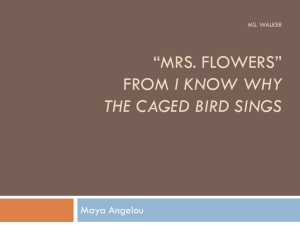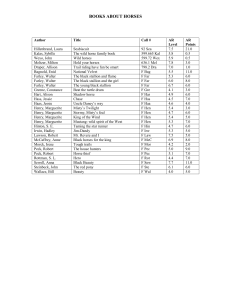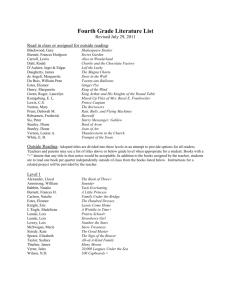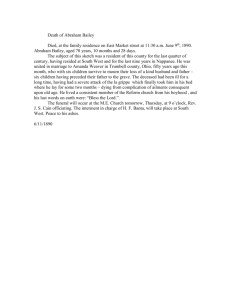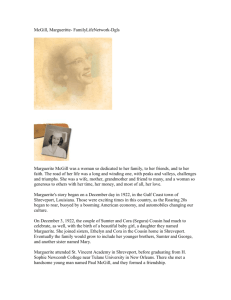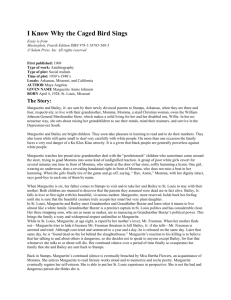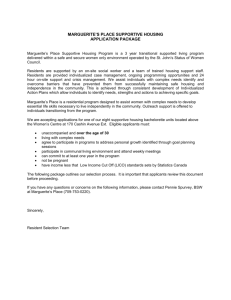I Know Why the Caged Bird Sings (1979) (TV)
advertisement
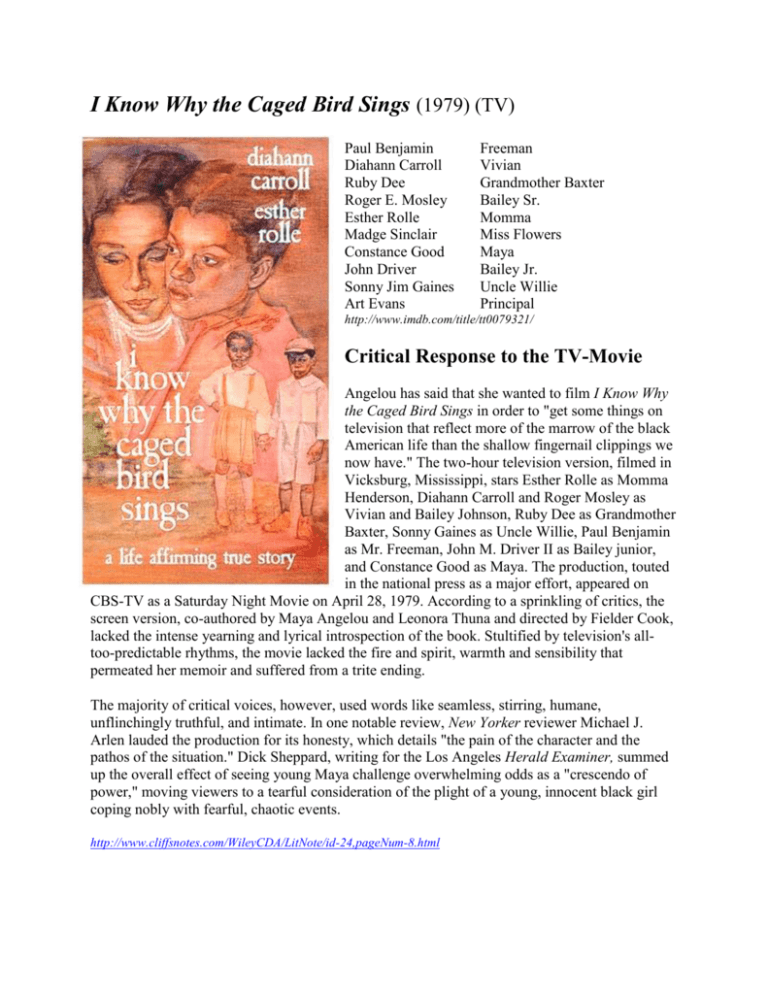
I Know Why the Caged Bird Sings (1979) (TV) Paul Benjamin Diahann Carroll Ruby Dee Roger E. Mosley Esther Rolle Madge Sinclair Constance Good John Driver Sonny Jim Gaines Art Evans Freeman Vivian Grandmother Baxter Bailey Sr. Momma Miss Flowers Maya Bailey Jr. Uncle Willie Principal http://www.imdb.com/title/tt0079321/ Critical Response to the TV-Movie Angelou has said that she wanted to film I Know Why the Caged Bird Sings in order to "get some things on television that reflect more of the marrow of the black American life than the shallow fingernail clippings we now have." The two-hour television version, filmed in Vicksburg, Mississippi, stars Esther Rolle as Momma Henderson, Diahann Carroll and Roger Mosley as Vivian and Bailey Johnson, Ruby Dee as Grandmother Baxter, Sonny Gaines as Uncle Willie, Paul Benjamin as Mr. Freeman, John M. Driver II as Bailey junior, and Constance Good as Maya. The production, touted in the national press as a major effort, appeared on CBS-TV as a Saturday Night Movie on April 28, 1979. According to a sprinkling of critics, the screen version, co-authored by Maya Angelou and Leonora Thuna and directed by Fielder Cook, lacked the intense yearning and lyrical introspection of the book. Stultified by television's alltoo-predictable rhythms, the movie lacked the fire and spirit, warmth and sensibility that permeated her memoir and suffered from a trite ending. The majority of critical voices, however, used words like seamless, stirring, humane, unflinchingly truthful, and intimate. In one notable review, New Yorker reviewer Michael J. Arlen lauded the production for its honesty, which details "the pain of the character and the pathos of the situation." Dick Sheppard, writing for the Los Angeles Herald Examiner, summed up the overall effect of seeing young Maya challenge overwhelming odds as a "crescendo of power," moving viewers to a tearful consideration of the plight of a young, innocent black girl coping nobly with fearful, chaotic events. http://www.cliffsnotes.com/WileyCDA/LitNote/id-24,pageNum-8.html Chapter Summaries—I Know Why the Caged Bird Sings 1-5 Marguerite and Bailey are shipped by train from California to Stamps, Arkansas to live with their grandmother (Momma) and Uncle Willie because their parents are divorcing. She is four and he is five. The children grow up working with Momma and Uncle Willie in Momma’s general store. Willie must be hidden from white men who are out looking to lynch a black man. Momma is mocked by some white girls from the neighborhood and Marguerite is upset that she allows them to treat her badly. 6-10 Marguerite’s attitudes toward religion and church are shown. Momma’s background is described. Because they are black, Momma’s family is considered lower class in Stamps than the white families who are poorer. Marguerite and Bailey receive Christmas gifts from their parents but wonder why they should care. Their father, Bailey Sr., arrives and takes them to St. Louis to live with their mother, Vivian. They discover that Vivian’s mother, Grandmother Baxter, is a very powerful woman in the city. 11-15 Vivian’s boyfriend, Mr. Freeman, starts to make advances toward Marguerite although she is too young to understand what he is doing. Later he rapes her and threatens to kill Bailey if she tells on him. Bailey convinces her to tell what happened and Freeman is arrested. After the trial, he is found kicked to death. Marguerite refuses to speak, and because no one understands what she is going through, she and Bailey are sent back to Stamps. Marguerite meets Mrs. Flowers, who inspires her to read. 16-20 Marguerite is sent to a white woman’s house to learn manners, but she ends up being more or less a servant. Bailey is late coming home from the movies, scaring the family. A religious revival comes to town and energizes the farmers. The black people of Stamps listen as Joe Louis wins the world championship belt. Marguerite makes friends with a girl at school, and a boy sends her a valentine. 21-25 Bailey has a relationship with an older girl that gets physical, which upsets Marguerite after her experience in St. Louis. Marguerite graduates from the eighth grade and is the commencement speaker. Marguerite gets a toothache and Momma takes her to a white dentist who owes her money. The dentist gives her the money back because he refuses to work on a black person’s teeth, so Marguerite has to be taken to a black dentist 25 miles away. Bailey sees a dead man who has been pulled from a pond. He was lynched. Plans are made to send Marguerite and Bailey to California to live with their mother in San Francisco. 26-30 Vivian throws a party in the middle of the night for Marguerite and Bailey. She marries Daddy Clidell, a successful man. During WWII, Marguerite sees racism toward another group, the Japanese Americans. She is sent to a fine arts school. Marguerite meets Daddy Clidell’s friends, many of whom are hustlers and con men. She goes to Southern California to visit her dad and meets his new girlfriend, Delores. Marguerite and her father take a memorable drive to Mexico. 31-36 The Mexican trip does not sit well with Delores, who attacks Marguerite. Marguerite runs away and lives in a junkyard with other runaways for a month. Finally she contacts her mother, who sends her money to return home. Bailey and Vivian’s conflicts grow more and more intense, and he moves out. Marguerite decides that she wants to become a streetcar conductor. During this time, she has an identity crisis and wonders if she is a lesbian. As an experiment, she sleeps with a boy and soon discovers that she is pregnant.
